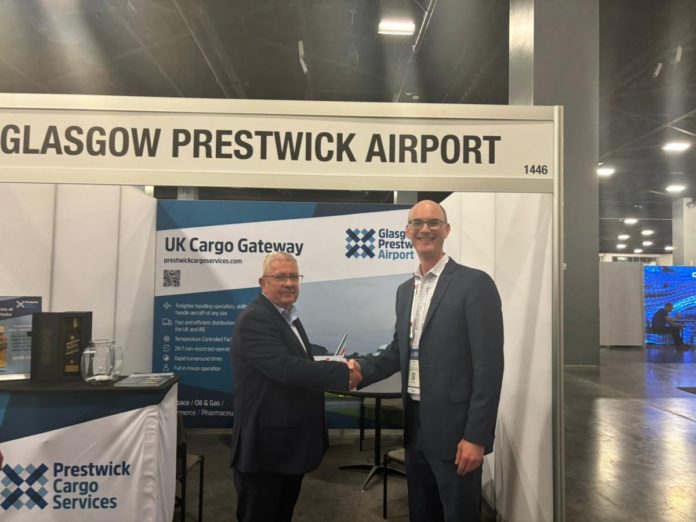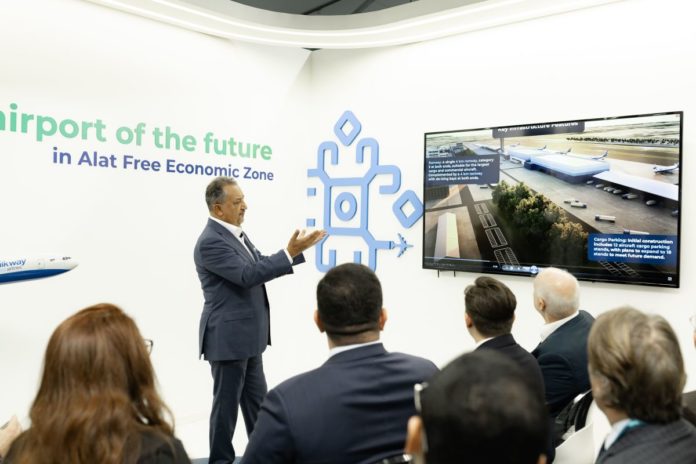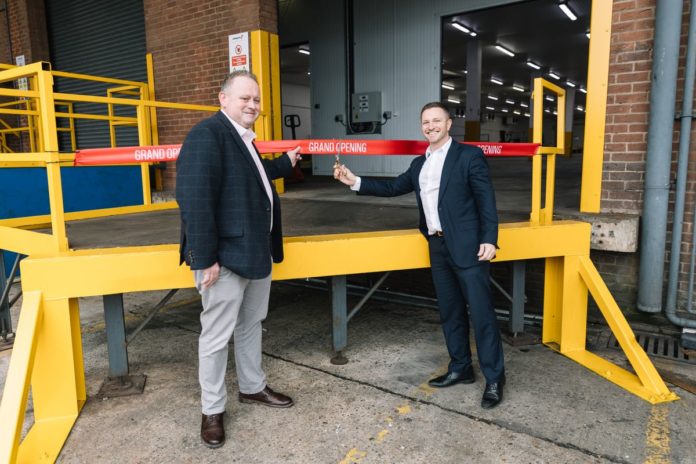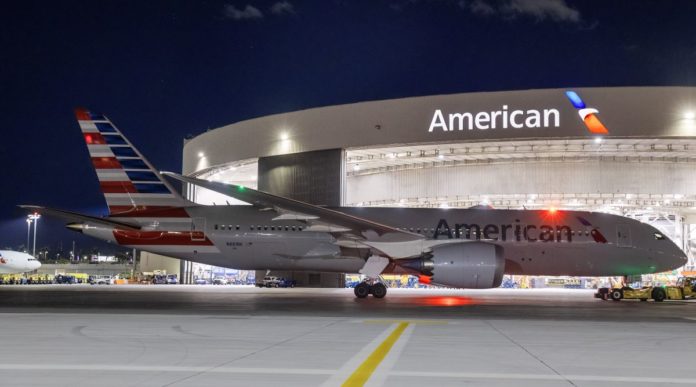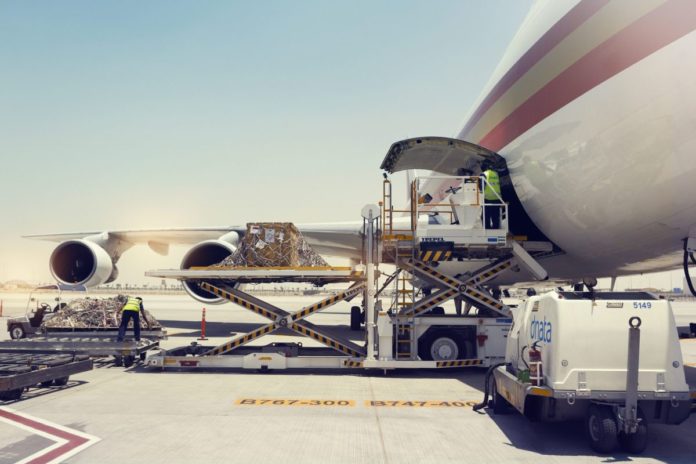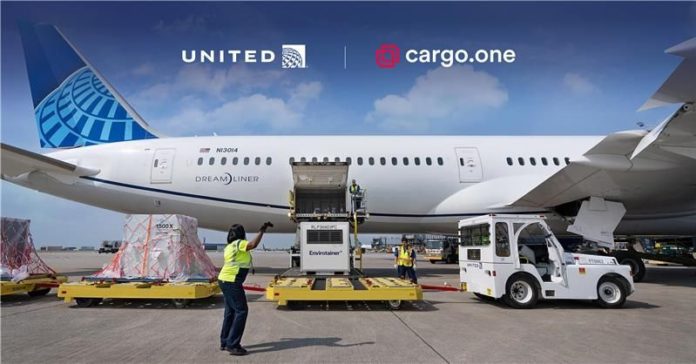UK based packaging specialist Tower Cold Chain – recently acquired by Massachusetts-based Cold Chain Technologies – has introduced a carbon calculator to help customers improve the sustainability of their logistics operations in partnership with Cardiff University’s Business School and using datasets from the Department for Energy Security and Net Zero. It provides actionable insights that enable customers to make informed decisions about their environmental impact and helps identify areas for improvement within Tower’s operations and the wider supply chain. It also compares Tower’s solutions against alternatives.
AGS appoints growth officer
New York-based Freight forwarder Accelerated Global Solutions (AGS) has appointed Tony Barnes to the new position of global chief commercial and growth officer. He also assumes the role of global head of ocean product.
His appointment follows the company’s acquisition by Chris Zheng, founder and chief executive of last-mile delivery specialist SpeedX.
Barnes’ career includes senior roles such at AP Moller-Maersk in Hong Kong and Ceva Logistics and was most recently president, Asia Pacific at Seko Logistics.
He stated: “Joining AGS at this stage of growth, as it continues to expand its international reach and capabilities, is a remarkable opportunity. The integration with SpeedX provides a unique platform to offer our clients end-to-end solutions that streamline logistics across borders.”
Chicago Rockford signs cargo-boosting deal with Scottish gateway
Chicago Rockford International Airport has signed an agreement with Glasgow Prestwick Airport in Scotland, UK to promote cargo flights between the two locations.
It aims to strengthen the trade lane and to boost information sharing between the airports.
Both airports run full-service 24-hour operations with no night flying or handling restrictions, allowing for continuous operations at either end.
Several aerospace manufacturers operate within the catchment areas of both Prestwick and Rockford.
Prestwick business development director, Nico Le Roux (pictured, left at the TIACA Air Cargo Forum in Miami), said: “We are looking forward to getting underway with this new partnership with Rockford, and working with another regional cargo hub to grow this high-potential trade lane. Our initial focus will be on aerospace cargo, as both Prestwick and Rockford are positioned within large aerospace industry clusters.”
E-commerce is another major focus with Prestwick’s appointment as Royal Mail Group’s international e-commerce gateway to the UK, while Rockford is an established U.S. e-commerce hub.
Rockford’s executive director, Zack Oakley (right), commented: “The Chicago-UK air cargo market flow amounts to over 26,000 tons annually and is currently underserved by direct air cargo routes to Scotland. Developing the air cargo connections between PIK and RFD aims to rectify this, while supporting the emerging growth factors for air cargo across the perishables, automotive, pharma, and e-commerce sectors.
“The partnership also allows us to help shippers secure significant cost savings and Co2 reductions, aligning with both airports’ sustainability goals.”
Silk Way unveils plans for new Azerbaijan airport at COP29
Silk Way Group unveiled plans for a new cargo airport in the Alat Free Economic Zone during the COP29 summit, being held in its home country, Azerbaijan. It will operate under the Silk Way Alat Free Economic Zone Company, a registered entity established to advance Silk Way Group’s logistics and infrastructural initiatives in the region.
The project includes will a 4,000-meter runway and taxiway, 18 aircraft stands, individual forwarder warehouses, perishables airside facilities and office buildings.
On completion of the project in 2026, the wider Alat Free Economic Zone will have access to the Baku International Sea Trade Port and rail and motorway networks.
President of Silk Way Group, Zaur Akhundov, noted: “The establishment of the new cargo airport in the Alat Free Economic Zone represents a significant milestone in the country’s history, signifying a shift towards new opportunities that will effectively address the increasing local and global demand for freight transport. This initiative not only bolsters our standing within the Middle Corridor but also opens up new avenues for growth, offering promising prospects for our business, as well as for our valued partners and investors.”
Chief executive of Silk Way Alat Free Economic Zone Company, Jawad Dbila, added that the new cargo airport would be “a pillar of the Alat Free Economic Zone, transforming our vision for Azerbaijan’s logistics and transportation capabilities into reality.”
Sander Doves, director of TKH Airport Solutions, a technology partner in the project that that his company’s advanced airfield ground lighting technology would be used in the construction of the runway and would result in enables significant energy savings.
Swissport opens new Heathrow site
Airfreight handler Swissport has opened a new hub at Heathrow Airport at Building 588. It includes 15,000sq ft of temperature-controlled space, advanced warehouse management systems and real-time tracking capabilities, along with a Border Inspection Post.
It follows substantial growth in the UK, driven largely by e-commerce imports, as well as demand for pharmaceuticals and perishable items. Tonnage has increased 17% increase in in the year to date, it said.
Swissport is also planning to open a new facility at London Gatwick, and expand its sites at East Midlands, Manchester, and London Stansted.
Chief operating officer of cargo, Joe Bellfield, said: “Our new facility at Heathrow is a cornerstone of our global air cargo expansion strategy. It not only enhances our service capabilities at a critical global hub but also demonstrates our commitment to investing in infrastructure and technology to meet the growing demands of the air cargo industry.
“Several customers are waiting to join Swissport’s portfolio once we have the space, and we’re thrilled to be expanding at Gatwick, East Midlands, Manchester, and Stansted in the months that follow our opening at Heathrow Airport.”
More American flights from Miami
American Airlines will expand its European network from Miami International Airport in summer of 2025 with its first-ever service to Rome Fiumicino Airport and two daily flights between to London Heathrow. Flights to Rome will start on June 5, a month earlier than previously planned. The carrier will offer service to five European destinations from Miami, including year-round service to Barcelona, Paris Charles de Gaulle and Madrid.
Dnata gains Cargo IQ status
Dubai based ground handling company Dnata has received its first Cargo iQ certification
It has integrated the Cargo iQ principles into its existing Quality Management framework, with the aim of reporting three quarters of shipments globally.
Its stations at Dubai, London, Amsterdam and Singapore are already using data collection to feed into the quality monitoring framework.
Dnata global has been a member of Cargo iQ since 2020.
Senior vice president for UAE cargo and global cargo strategy, Guillaume Crozier, said: “Achieving excellence in air cargo requires not only compliance and rigorous data management, but also a commitment to community performance, supply chain visibility and safeguarding product integrity at every step. Dnata supports the Cargo iQ framework and will continue to invest in technology and innovation, aiding real time capability to support our customers, and delivering on our promises.”
Swissport to buy eCommerce firm
Swissport International is to acquire end-to-end e-commerce handling company, ViaEurope, subject to regulatory approvals. It aims to create a single point of contact for shippers, airlines and freight forwarders, providing a comprehensive service offering across each step of the product journey from aircraft handling, warehousing, customs clearance, tracking and preparation for delivery. ViaEurope operates at Amsterdam, Brussels, Budapest, Frankfurt and Liège airports.
New chief for Saudia Cargo
Saudia Cargo has appointed Eng. Loay Mashabi as its new chief executive officer and managing director from 1 January. He succeeds Teddy Zebitz as chief executive, who will continue to serve as a member of the board of directors. Eng. Mashabi has been a Saudia Cargo board member since August 2021 before becoming managing director in October 2023. Prior to joining the carrier, he served as deputy minister for logistics services at the Ministry of Transportation and Logistics Services, and Deputy Governor for Planning and Development of the General Authority of Customs.
United Cargo joins Cargo.one
Leading US air belly carrier United Airlines has joined the cargo.one digital cargo booking platform. Currently, the service on cargo.one is available to selected customers in the US, Canada, the UK, Belgium, France, Germany, Italy, the Netherlands, Spain and Switzerland but the carrier plans to progressively introduce the platform to additional markets in the months ahead.










